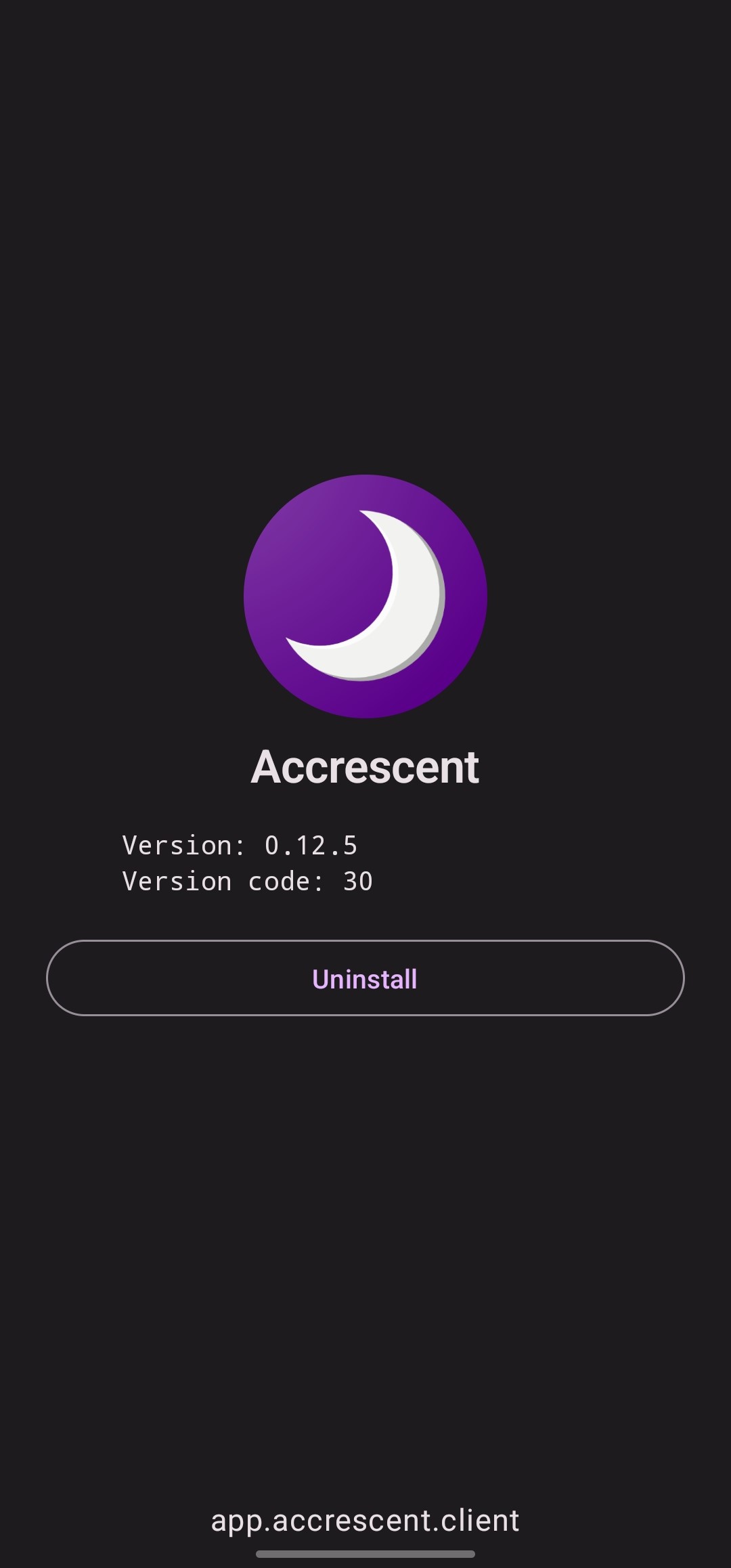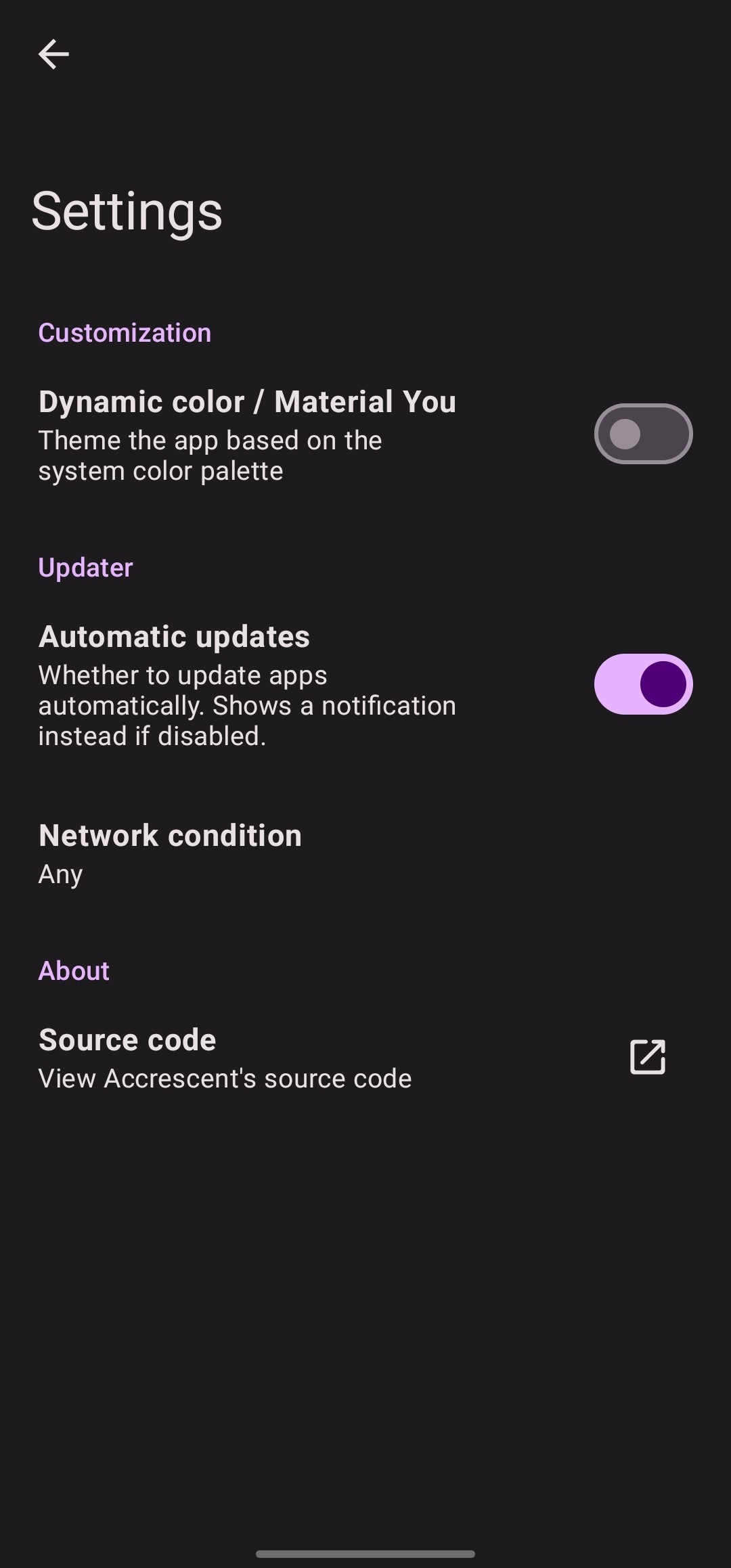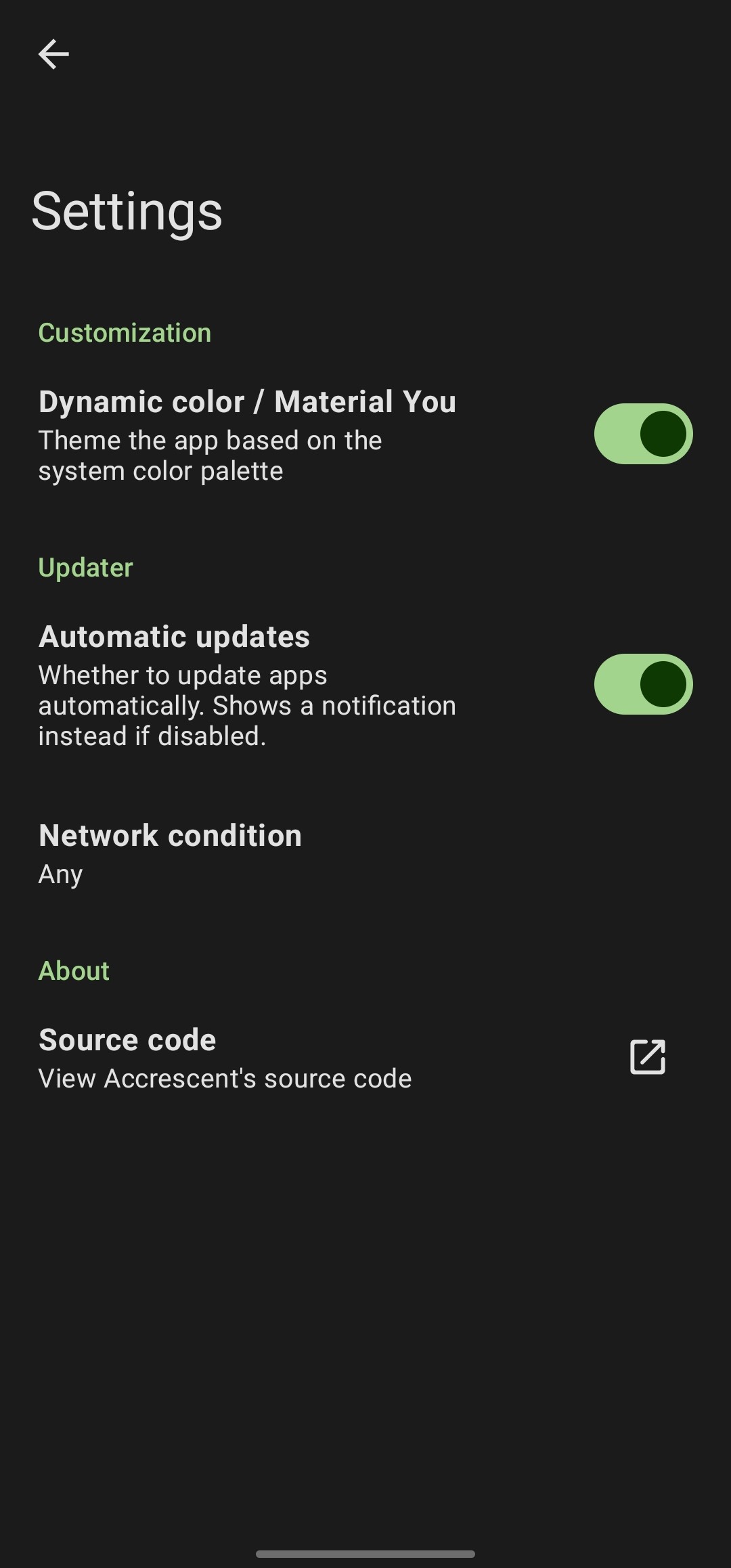Currently in early alpha.
| Home Page | App Details |
|---|---|
 |
 |
| Settings Menu | Material You |
|---|---|
 |
 |
Accrescent is a private and secure Android app store built with modern features in mind. It aims to provide a developer-friendly platform and pleasant user experience while enforcing modern security and privacy practices and offering robust validity guarantees for installed apps. It does this through the following features:
- App signing key pinning
- Signed repository metadata
- Automatic, unprivileged, unattended updates (Android 12+)
- First-class support for split APKs
- No remote APK signing
- Meaningful quality control for submitted apps
- No account requirement for installing apps
...and more. See the features page on the website for details.
Accrescent currently runs on Android 10 and up.
Contributions are welcome! If you're interested in helping out, be sure to check out the contributing guidelines for tips on getting started.
Accrescent's SHA-256 signing certificate hash is as follows:
067a40c4193aad51ac87f9ddfdebb15e24a1850babfa4821c28c5c25c3fdc071
Be sure to check it against the hashes on our website and Twitter to verify its legitimacy.
Accrescent has a project on Hosted Weblate if you would like to help translate.
The name "Accrescent" and the Accrescent logo are common law trademarks owned by the Accrescent project. All other parties are forbidden from using Accrescent's name and branding, as are derivatives of Accrescent. Derivatives include, but are not limited to forks and unofficial builds.
